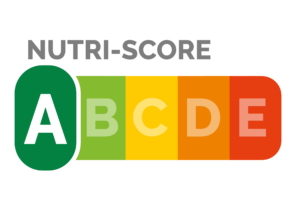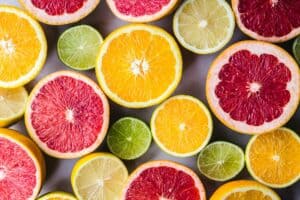Columns • At the very beginning we at Bayn Solutions used just steviol glycosides for sugar reduction. Then we developed our product line Eureba, that builds on sweetened fibres. The ingredients in Eureba are cultivated or produced on different continents, and then transported one by one to our production network in Europe. It takes an exceptional quality management for everything to come together, nothing can be left to chance. Curious yet? Read on to find out how we do this.
Words like quality and safety is sweet music to everyone in the food and beverage industry. But how do you authenticate this?
The international standard for management systems, ISO 9001, is such an authentication. It was the proof that our long and methodical work in developing a management system which constantly improves and adjusts our business to meet the needs of our customers, was worth its salt. For us it also marks the transition from a young entrepreneurial company to a mature company that customers can trust.
We keep an eye on what we do not do, too
It may make sense to point out what we do not do: We do not grow our ingredients ourselves. And we don’t make consumer products with our sweetened fibres. But, we safeguard the high quality of our raw material and that our customers, the food producers, can manufacture a quality end product.
So why do we do this?
We buy ingredients from different countries and transport them to our production sites in Europe where we make Eureba — our product range of sweetened fibres. To ensure the highest possible quality in the end product, the ingredients and the manufacturing must be of the highest quality too. This is why we put an immense effort into finding the very best ingredients and why we safeguard quality throughout the manufacturing process. We do everything and more, to ensure that our product meets your demands.
Proudly nitpicking
Our ingredients come from China, the US, The Netherlands, and some other countries. When ingredients come from several places in the world, both availability and quality can vary. But the quality of our sweetened fibres is high, consistent and delivered on time.
To manage this we must be extremely thorough — verging on nitpicky.
It’s not sufficient to be in control of the manufacturing step alone. The previous steps must be just as good. And it is followed by even further steps before the sweetened fibres can replace sugar in consumer products.
We monitor all these steps. This is the process that our ISO 9001 management system helps us to continuously improve.
Continuously seeking new and better ingredients
We could, of course, settle for what we have now. But we don’t. What is good can always become better.
We continuously seek ingredients of the highest quality from our suppliers. And we keep our eyes and ears open for new ingredients from natural sources that might be interesting to use in our product range — and which in the end will be a perfect fit for you who want to replace sugar in your products.
We will never rest as regards development and improvement.
Climate conscious transports
All roads lead to Rome, they say. In our case they lead to Bulgaria. This is where we manufacture our sweetened fibres.
Of course, we keep an eye on our carbon footprint when we select transport options from ingredient supplier to manufacturing partner. One energy conscious way is to ensure that fully loaded ships are used for the transport. That’s why the majority of our ingredients are transported by sea. (However, it does happen, when there’s a rush order, that we use air freight.)
To create efficient and climate conscious deliveries to the Nordic countries we are also planning to place parts of the manufacturing at a Danish facility.
Code of conduct
It goes without saying that we wish it was a natural fact that children go to school, and not work. However the world is not always like that. So we put our foot down and do not permit child labour. This is one of several demands in Bayn’s Code of Conduct.
Fair working conditions and a good working environment are other demands we place on our subcontractors.
No genetically modified ingredients
We are, as we said, nitpicky. Our products live up to international standards and all relevant regulations. But we don’t stop at that.
We do not use any genetically modified ingredients in our products. We select suppliers who show a great environmental consideration when they grow, harvest and prepare our ingredients. We don’t compromise on food safety and hygiene. The same goes for our suppliers’ production capacity.
Organic?
Organic would be the logical thing, right? Yes, but unfortunately the regulations of the EU throw a spanner in the works.
There are no obstacles to growing and using organic stevia. But the EU regulations do not allow steviol glycosides to be marked as organic.
It’s unfortunate. We work with ingredients from natural sources and that means, of course, that we are open and interested in organic ingredients. If the rules of the EU will change, we will immediately look closer at offering the possibility to provide sweetened fibres with steviol glycosides from organically grown stevia plants.
Would you like to know more?
We would love to talk to you and tell you more about how we work with quality and safety. Send us an e-mail, or give us a call.
Please, share this article if you liked it.
[et_social_share]




